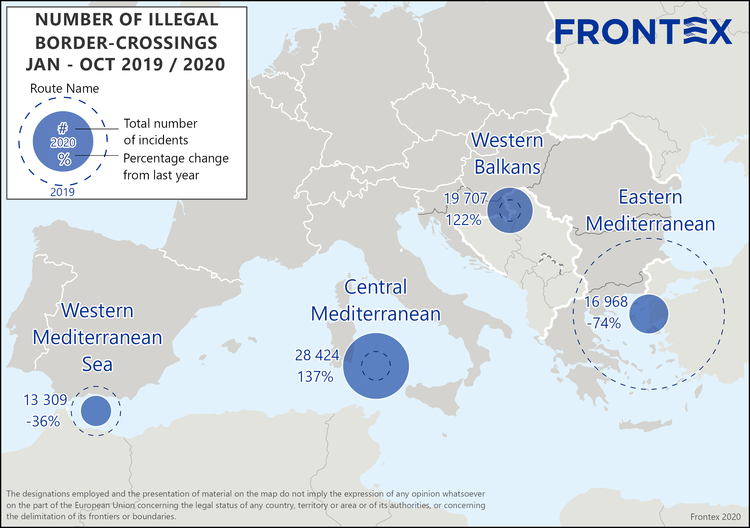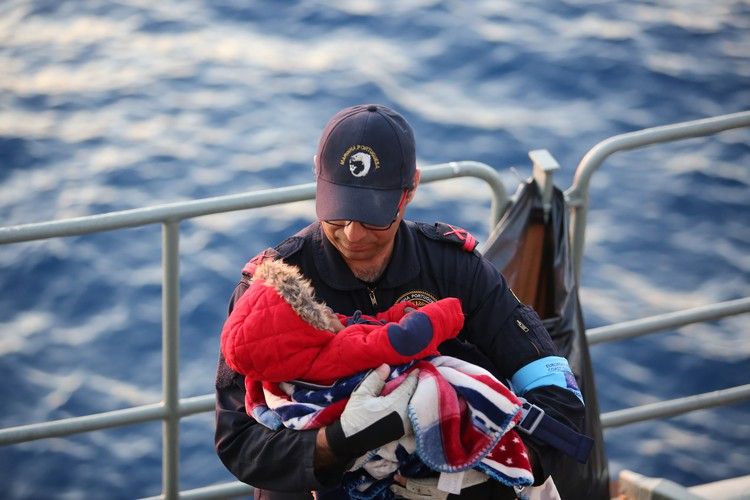The number of illegal border crossings at Europe’s external borders fell by 21% in the first 10 months of this year to 87 500*, largely because of a drop in arrivals in Eastern and Western Mediterranean, according to preliminary calculations.
In October, the number of illegal border crossings was 19% lower than in the previous month, reaching 10 900.
Western Africa
- More than 5 300 irregular migrants arrived on the Canary Islands in October, ten times the monthly total from a year ago. However, the number was not included in the monthly total for illegal border crossings into the European Union because it is a preliminary figure.
- In the first 10 months of the year, 11 400 irregular migrants were detected reaching the Canary Islands. Most of these arrivals were recorded since the beginning of August.
- Nationals from sub-Saharan countries accounted for most of the arrivals.
Central Mediterranean
- The Central Mediterranean saw a 29% drop in illegal border crossings from the previous month to around 3 000.
- In the first 10 months of this year, the total number of illegal crossings on this route more than doubled to above 28 400.
- Tunisians have accounted for two out of every five illegal crossings via the Central Mediterranean, while Bangladeshis were responsible for one in five.

Western Mediterranean
- There were 1 800 detections of illegal border crossings in the Western Mediterranean in October, 37% less than in the previous month.
- The total for the first 10 months of 2020 stood at 13 400, or 37% less than in the same period in the previous year.
- Algerians accounted for two-thirds of all detections on this route this year, while Moroccans were the second most represented nationality.
Eastern Mediterranean
- According to the most recent data, there were around 1 050 detections of illegal crossings reported in October on the Eastern Mediterranean route, about a quarter less than in the previous month. Most of the detections took place at the land border.
- In the January-October period, the total number of detections dropped by almost three-quarters to around 17 000.
- Nationals of Afghanistan, Syria and Turkey accounted for the largest number of detected migrants.
Western Balkans
- There were nearly 3 500 detections of illegal border crossings on the Western Balkan route in October, more than a third above the figure in September.
- In the first 10 months of this year, more than 19 700 migrants were detected at EU’s border with the Western Balkan countries, more than double the total from the first 10 months of 2019.
- More than half of the irregular migrants detected in the region so far this year were Syrian, while Afghans accounted for another quarter of all detections at the EU borders here.






Leave a Reply